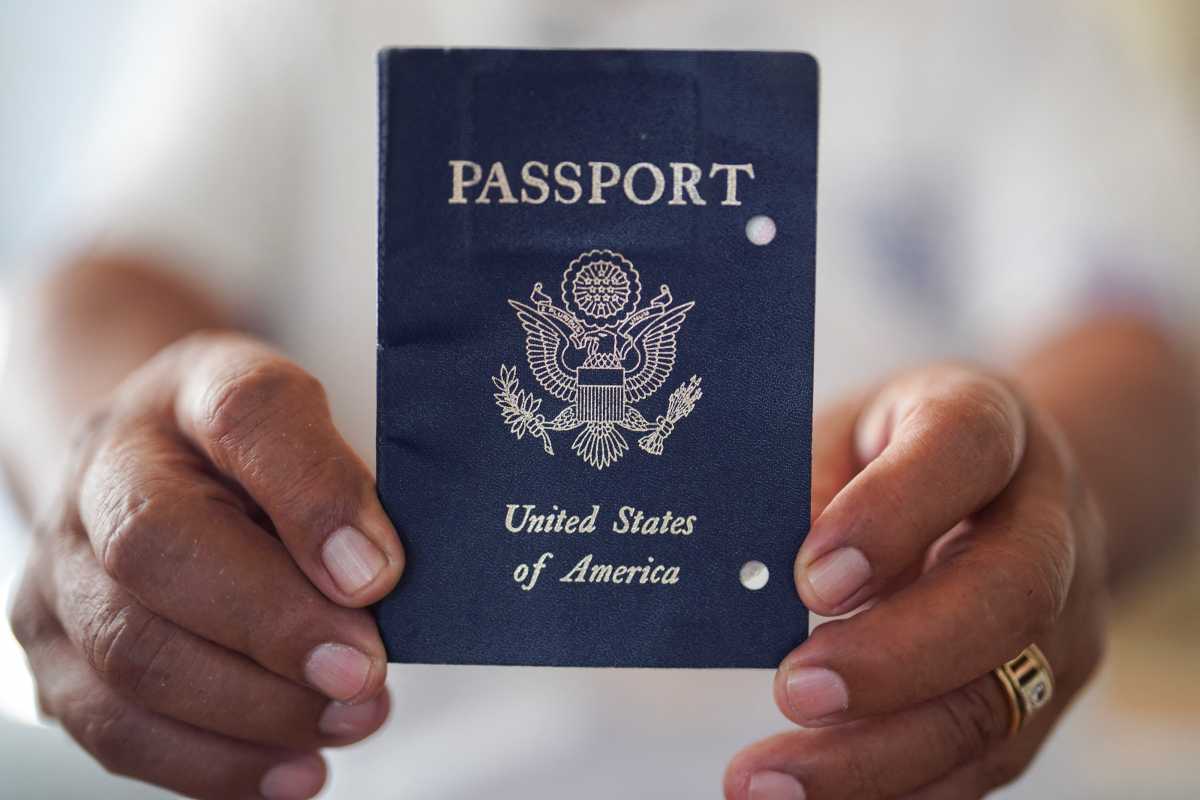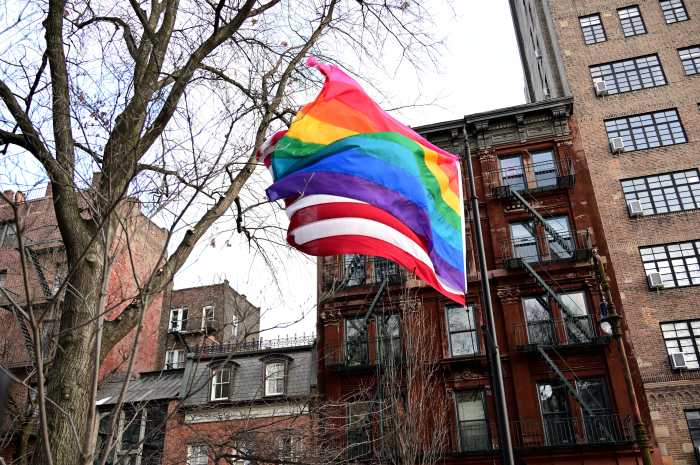Beginning in 1992, the US State Department’s passport office permitted transgender people to obtain passports that identify their sex consistent with their gender identity. During the Biden administration, responding to court rulings, the department also provided an option for non-binary people to obtain a passport showing their sex as X. Although the policy was modified several times over the years, each time making it easier for transgender and non-binary people to obtain such passports, Congress never reacted by passing legislation to either codify or countermand these policies.
On Jan. 20, 2025, the day he took office for his second term, President Trump issued Executive Order 14168, proclaiming that “it is the policy of the United States to recognize two sexes, male and female,” and defining those terms to mean “a person belonging, at conception, to the sex that produces the [small and] large reproductive cells, respectively,” and declaring that it was a “false claim that males can identify as and thus become women and vice versa.” Trump’s order went on to attempt to erase the existence of transgender people from federal law and he directed the State Department to change its passport policies in accordance with this order. Within weeks the State Department issued new passport rules providing that all passports reflect only the individual’s sex assigned at birth and eliminating the X option for those identifying as non-binary. The State Department did not undertake procedures required by the Administrative Procedure Act for changing existing agency policies, instead proceeding quickly to translate the president’s directive into new rules.
The immediate impact of the policy change would be felt both by transgender and non-binary individuals first applying for passports, as well as those seeking modifications or renewals of existing passports. The State Department’s policy announcement indicated that existing passports showing the gender identity of the passport holder would remain valid until their expiration date. People who had submitted applications to renew their passports soon discovered their new passports showed their sex as identified at birth. Transgender people filed federal lawsuits challenging these changed policies.
On April 18, District Judge Julie E. Kobick of the US District Court in Boston issued a preliminary injunction in a lawsuit brought by the ACLU on behalf of several transgender individuals making claims under the Fifth Amendment and several federal statutory provisions, most significantly the Administrative Procedure Act (APA). The preliminary injunction barred Secretary of State Rubio and State Department officials from applying the new policy to the named plaintiffs. The injunction did not name President Trump.
On June 17, in response to the filing of an amended complaint, Judge Kobick granted a motion by the plaintiffs to expand the case to cover non-binary people as well as transgender people and to certify two classes, a transgender class and a non-binary class, making it possible for her to expand the preliminary injunction beyond the named plaintiffs and to make this a class action lawsuit, although she included a “carve-out” of individuals who have a separate lawsuit under way in the US District Court in Baltimore.
The government moved for a stay of the preliminary injunction, which Judge Kubick denied on July 11, and then it appealed the grant of the preliminary injunction and the denial of a stay to the First Circuit Court of Appeals, resulting in a unanimous denial of the government’s motion to stay the preliminary injunction by a three-judge panel consisting of Circuit Judges Lara Montecalvo, Julie Rikelman, and Seth Aframe, in an order issued on Sept. 4.
The government’s appeal of the preliminary injunction is pending at the First Circuit. Meanwhile, the district court docket reflects the government’s representation that the State Department’s Passport Office has resumed processing passport applications using the policy in effect before the president issued his executive order.
Meanwhile, just days after the First Circuit’s refusal to stay the preliminary injunction, Chief US District Judge George L. Russell, III, granted a preliminary injunction in the case pending in Maryland. Judge Russell, like Judge Kubick, found that the plaintiffs were likely to prevail on their constitutional equal protection claim and were thus entitled to preliminary relief. He did not rule on the APA claims in his Sept. 9 decision.
The key issue for such preliminary relief is whether the plaintiffs have shown the likelihood of success on the merits of their claims. Judge Kubick based her preliminary injunctions on her conclusion that the policy change likely violated the Administrative Procedure Act as “arbitrary and capricious” as well as the Fifth Amendment of the Constitution. The government argued that the court had no power to subject this policy change to judicial review because it was ordered by the president, who is not subject to the Administrative Procedure Act, which applies to actions by federal agencies such as the State Department and its passport office. Judge Kubick found that the president’s general directive to the State Department to adjust its policies in response to his executive order did not deprive the agency of any discretion about how to proceed. Judge Kubick found that the department made several “independent determinations in formulating” the new passport policy, and thus its actions were reviewable under the APA.
The government argued that because the president essentially dictated the policy, it could not be reviewed by the court. But the court of appeals found that the government had failed to “develop” this point by reference to any Supreme Court or Court of Appeals opinions. This left it as a matter of “first impression in the federal courts of appeal,” and “we cannot conclude on the present submissions that the government has made a strong showing that the passport policy is unreviewable under the APA.”
The plaintiffs’ constitutional claim is that the policy change violates the Equal Protection requirements of the Fifth Amendment, arguing that it was based on “unconstitutional animus toward transgender Americans.” The court of appeals wrote that “the government in its motion fails to engage meaningfully with the district court’s analysis” which had found evidence of “unconstitutional animus.” Once again, the government’s submission was characterized as “leaving undeveloped its contentions that the express ‘purposes’ section of the executive order justifies the passport policy and that the government has an interest in using an ‘objective’ criterion for determining sex.”
Judge Kubick had identified “four overarching considerations underlying [her] conclusion that the plaintiffs are likely to succeed on their animus claim,” but the government “does not grapple in its motion to stay with the four prongs of the district court’s reasoning.” Neither did the court find persuasive the government’s argument that it would suffer irreparable harm by a delay in implementing its new policy, while observing that the plaintiffs had credibly argued that they would suffer “immediate and irreparable harms” by not being able to get passports that accurately reflected their gender identity. This was especially true for those planning overseas travel.
“Relatedly,” wrote the court of appeals, “in granting class-wide injunctive relief, the district court pointed to immediate and irreparable harms on a class-wide basis, explaining that the plaintiffs had offered ‘uncontroverted evidence of the harms that transgender and non-binary people face’ if required to use such passports.” Thus, concluded the court, the government “had not sufficiently demonstrated that the balance of harms and equities favors upending the status quo and subjecting the plaintiffs to the immediate harms identified by the district court.” The court considers the “status quo” to be the policy in effect for more than 30 years before the president issued his executive order.
So far, all of the judges ruling in the Boston case, both at the district court and the court of appeals, have been appointees of President Biden. The First Circuit, which covers the states of Maine, Massachusetts, New Hampshire, Rhode Island, and the Commonwealth of Puerto Rico, is unusual in that there are no Republican appointees among its active judges, all being Obama and Biden appointees. There is currently one vacancy on the First Circuit. President Trump nominated Joshua Dunlap, a conservative Maine litigator, on July 16, and the Senate Judiciary Committee held a hearing on his nomination but has not voted to bring his nomination to the Senate floor. Judge Russell, who ruled in the Baltimore case, was appointed by President Obama.
As of now, if the government asks for the full First Circuit (“en banc”) to reconsider its motion, it would face a five-member bench consisting entirely of Democratic appointees, a majority of whom have already ruled against the government on this motion. Thus, it is more likely that the government would file an “emergency motion” with the Supreme Court seeking to block the preliminary injunction and begin enforcing the new passport policy.
Judge Kubick has appointed plaintiffs’ counsel from the American Civil Liberties Union, the ACLU of Massachusetts, and pro bono attorneys from Covington & Burling LLP to represent the two plaintiff classes. Lambda Legal represents the plaintiffs in the Baltimore case, together with pro bono attorneys from Arnold & Porter Kay Scholer LLP.



































